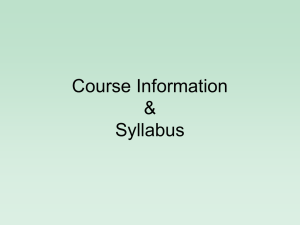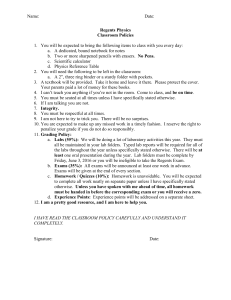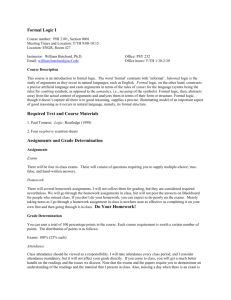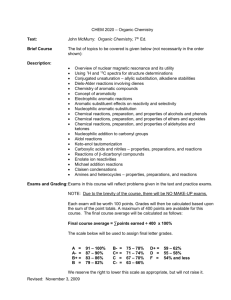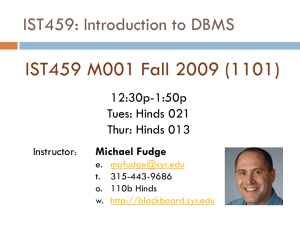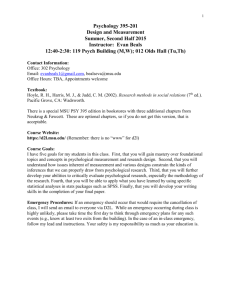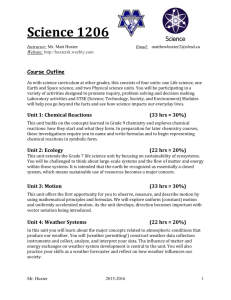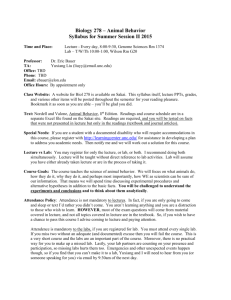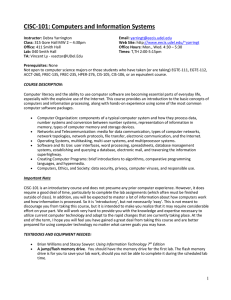CHEM 1030-010
advertisement
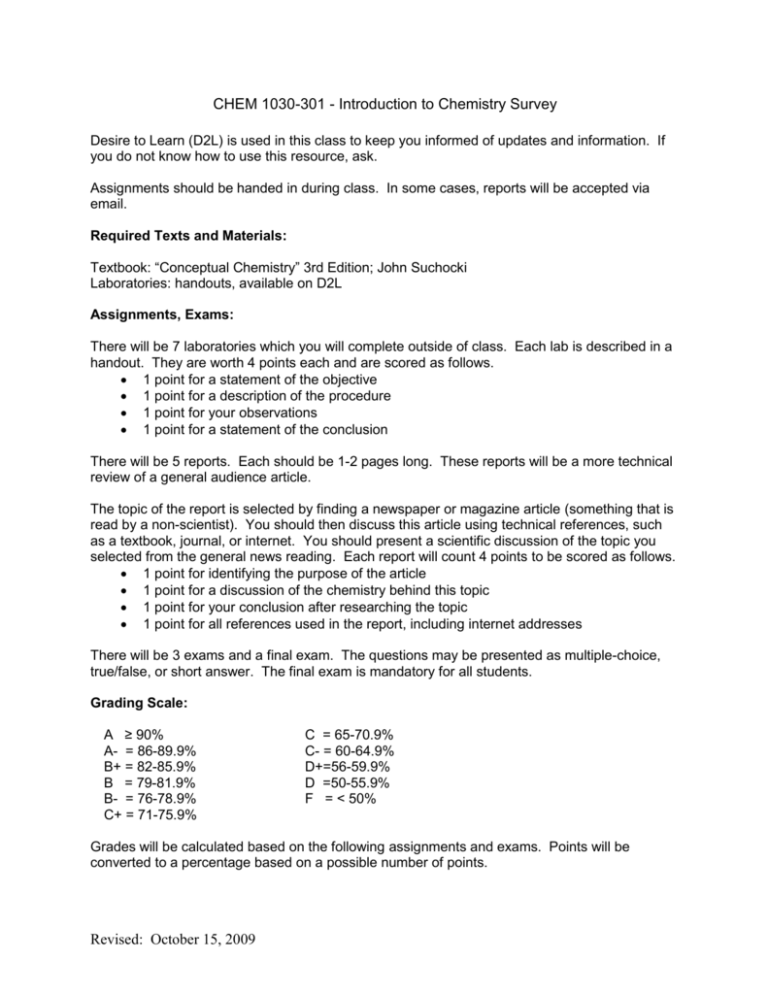
CHEM 1030-301 - Introduction to Chemistry Survey Desire to Learn (D2L) is used in this class to keep you informed of updates and information. If you do not know how to use this resource, ask. Assignments should be handed in during class. In some cases, reports will be accepted via email. Required Texts and Materials: Textbook: “Conceptual Chemistry” 3rd Edition; John Suchocki Laboratories: handouts, available on D2L Assignments, Exams: There will be 7 laboratories which you will complete outside of class. Each lab is described in a handout. They are worth 4 points each and are scored as follows. 1 point for a statement of the objective 1 point for a description of the procedure 1 point for your observations 1 point for a statement of the conclusion There will be 5 reports. Each should be 1-2 pages long. These reports will be a more technical review of a general audience article. The topic of the report is selected by finding a newspaper or magazine article (something that is read by a non-scientist). You should then discuss this article using technical references, such as a textbook, journal, or internet. You should present a scientific discussion of the topic you selected from the general news reading. Each report will count 4 points to be scored as follows. 1 point for identifying the purpose of the article 1 point for a discussion of the chemistry behind this topic 1 point for your conclusion after researching the topic 1 point for all references used in the report, including internet addresses There will be 3 exams and a final exam. The questions may be presented as multiple-choice, true/false, or short answer. The final exam is mandatory for all students. Grading Scale: A ≥ 90% A- = 86-89.9% B+ = 82-85.9% B = 79-81.9% B- = 76-78.9% C+ = 71-75.9% C = 65-70.9% C- = 60-64.9% D+=56-59.9% D =50-55.9% F = < 50% Grades will be calculated based on the following assignments and exams. Points will be converted to a percentage based on a possible number of points. Revised: October 15, 2009 4 Exams* 7 Labs 5 Reports 20 points each 4 points each 4 points each 80 points 28 points 20 128 points * includes Final Exam Attendance Policy, Make-up exams: Class attendance and participation in class is important in order to learn the material. Attendance will be taken to learn your names, and because the university will likely expect your attendance. You should refer to the rules and a schedule of the Registrar for adds/drops to the class. Students who attend class, do the assignments and study for the exams have a very good chance to do well in this class. See the calendar for exam dates and deadlines for labs and reports. There will be no make-up dates for exams. Conflicts with other class projects, work schedules, personal family issues; etc should be handled in advance. Assignments should be turned in on their deadline (or earlier). If you need an extension beyond that, you need to discuss this in advance. Cheating, plagiarizing: DON’T Study groups are encouraged. You might also wish to gather data for labs in groups to save money and time. BUT, the reports should be written in your words. It is acceptable to share data and discuss the data in groups, but answers to the thought questions are expected to be done individually. Students are responsible for handing in their own report sheets. One report for the group is NOT acceptable and the person handing in the report will be the only person to receive credit. Exactly worded answers on exams or reports will be suspect of copying and may result in a reduction of points. Exceptions include book definitions or definitions given in notes/lecture. When you directly quote a source or use a source for data, you MUST cite the source. It is a courtesy (and sometimes the law) to reference your sources. This is considered when grading your labs and reports. Disability Services: Any student with a special need for accommodation in the course should inform me. Disability Services can provide a letter if you have special classroom needs. Tentative Lecture Schedule: As always, the instructor reserves the right to modify this schedule as applicable. Every section of every chapter will NOT be covered. Chapter designations are for guide points only. Revised: October 15, 2009

